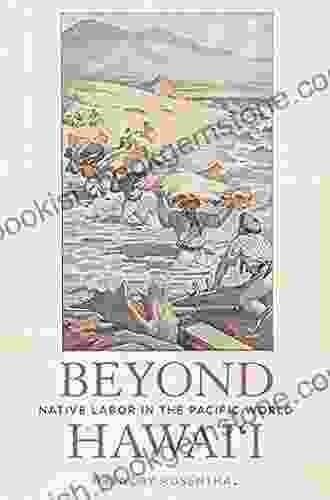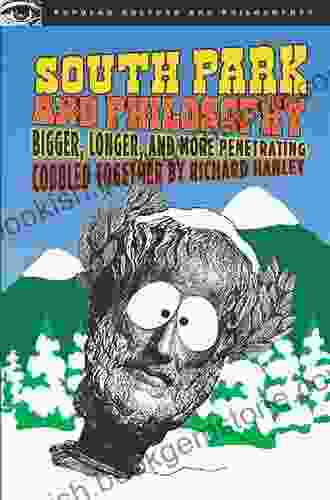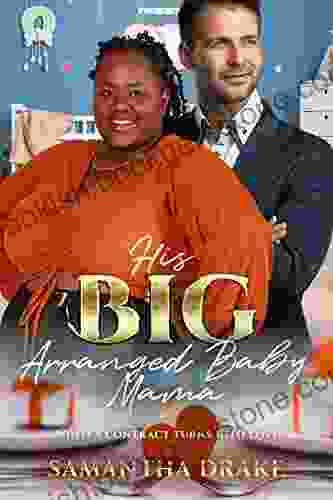The Philosophy of Spike Lee: The Philosophy of Popular Culture

Spike Lee is one of the most important and influential filmmakers of our time. His films have explored a wide range of social and political issues, from racism and police brutality to gentrification and the war on drugs. Lee's work is often characterized by its use of popular culture references, and he has been praised for his ability to make complex and challenging ideas accessible to a wide audience.
5 out of 5
| Language | : | English |
| File size | : | 1481 KB |
| Text-to-Speech | : | Enabled |
| Screen Reader | : | Supported |
| Enhanced typesetting | : | Enabled |
| Word Wise | : | Enabled |
| Print length | : | 261 pages |
In this essay, I will explore the philosophy of Spike Lee, focusing on his use of popular culture and his commitment to social justice. I will argue that Lee's work is a valuable contribution to the ongoing struggle for a more just and equitable society.
Popular Culture and Social Justice
Lee's use of popular culture is central to his philosophy. He believes that popular culture is a powerful tool that can be used to raise awareness of important social issues and to promote social change. In his films, Lee often uses popular culture references to connect with his audience and to make his message more accessible.
For example, in his film Do the Right Thing (1989),Lee uses the song "Fight the Power" by Public Enemy to comment on the racial tensions that exist in Brooklyn. The song's lyrics, which include the lines "Fight the power" and "Power to the people," resonate with the film's message of resistance and hope.
Lee's use of popular culture is not limited to music. He also uses film, television, and other forms of popular culture to make his points. In his film Malcolm X (1992),Lee uses clips from other films, such as The Birth of a Nation (1915) and King Kong (1933),to illustrate the ways in which racism has been represented in American popular culture.
By using popular culture references, Lee is able to connect with a wide range of audiences and to make his message more accessible. He believes that popular culture is a valuable tool that can be used to raise awareness of important social issues and to promote social change.
Commitment to Social Justice
Lee's commitment to social justice is evident in all of his work. He has used his films to speak out against racism, police brutality, gentrification, and the war on drugs. Lee's work has been praised for its honesty and its ability to provoke thought and discussion.
One of the most powerful examples of Lee's commitment to social justice is his film 4 Little Girls (1997). The film tells the story of the four black girls who were killed in the 1963 Birmingham church bombing. Lee's film is a moving and powerful indictment of racism and violence, and it serves as a reminder of the ongoing struggle for civil rights.
Lee's films have also been praised for their ability to inspire action. His film Do the Right Thing (1989) is credited with helping to spark the 1992 Los Angeles riots. Lee's film Malcolm X (1992) is credited with helping to inspire a new generation of black activists.
Spike Lee is a visionary filmmaker who has used his work to speak out against injustice and to promote social change. His films are a valuable contribution to the ongoing struggle for a more just and equitable society.
Spike Lee is one of the most important and influential filmmakers of our time. His films have explored a wide range of social and political issues, from racism and police brutality to gentrification and the war on drugs. Lee's work is often characterized by its use of popular culture references, and he has been praised for his ability to make complex and challenging ideas accessible to a wide audience. In this essay, I have explored the philosophy of Spike Lee, focusing on his use of popular culture and his commitment to social justice. I have argued that Lee's work is a valuable contribution to the ongoing struggle for a more just and equitable society.
5 out of 5
| Language | : | English |
| File size | : | 1481 KB |
| Text-to-Speech | : | Enabled |
| Screen Reader | : | Supported |
| Enhanced typesetting | : | Enabled |
| Word Wise | : | Enabled |
| Print length | : | 261 pages |
Do you want to contribute by writing guest posts on this blog?
Please contact us and send us a resume of previous articles that you have written.
 Best Book
Best Book Page Flip
Page Flip Bookshelf
Bookshelf Literary loom
Literary loom Chapter
Chapter Bookish
Bookish PageTurner
PageTurner Bibliophile
Bibliophile Story
Story Inkwell
Inkwell Bookworm
Bookworm Labyrinth
Labyrinth Plot Twist
Plot Twist Prose
Prose Paperback
Paperback Storyteller
Storyteller Sanctuary
Sanctuary Fiction
Fiction Reading
Reading Chronicle
Chronicle Read
Read Paul Thimou
Paul Thimou Reginald F Lewis
Reginald F Lewis Cath Caldwell
Cath Caldwell Sesali Bowen
Sesali Bowen Veronica G Henry
Veronica G Henry Bwwm Club
Bwwm Club Katie Middleton
Katie Middleton Lisa Brahin
Lisa Brahin Richard Lippe
Richard Lippe Nicole Pivirotto
Nicole Pivirotto Patti Bellantoni
Patti Bellantoni Megan Carr
Megan Carr Robert Gottlieb
Robert Gottlieb W David Baird
W David Baird Requiem Scolopendra
Requiem Scolopendra Shemer Kuznits
Shemer Kuznits Ruth Reichl
Ruth Reichl Kimberly Smith
Kimberly Smith Nick Axel
Nick Axel Peter Bone
Peter Bone Dave Brett
Dave Brett Roger Cowell
Roger Cowell Vaughn Heppner
Vaughn Heppner Jl Seegars
Jl Seegars Yishan Li
Yishan Li Noah Hurowitz
Noah Hurowitz Richard S Dunn
Richard S Dunn Didier Ghez
Didier Ghez Mary Breu
Mary Breu Kale James
Kale James Charles Ney
Charles Ney Pero Tafur
Pero Tafur Francis Tipene
Francis Tipene Mary Beard
Mary Beard Akire C
Akire C S L Osborne
S L Osborne Megan Marshall
Megan Marshall Kathleen Smith
Kathleen Smith Joseph Beuys
Joseph Beuys Sangeeta Prasad
Sangeeta Prasad Kindle Comixology
Kindle Comixology Stuart Douglas
Stuart Douglas Marcy Conway
Marcy Conway Tova Rabinowitz
Tova Rabinowitz Robert B Parker
Robert B Parker 1st Ed 2020 Edition Kindle Edition
1st Ed 2020 Edition Kindle Edition Rachel Shirley
Rachel Shirley Jerzy Kosinski
Jerzy Kosinski Russell Zimmerman
Russell Zimmerman Mark Odegard
Mark Odegard Vicki Rozema
Vicki Rozema Mike Grist
Mike Grist Lisa See
Lisa See Ken Budd
Ken Budd William Carroll
William Carroll Victoria Charles
Victoria Charles Krystyna Chiger
Krystyna Chiger Tammy Ruggles
Tammy Ruggles Graham Cole
Graham Cole William Gibson
William Gibson Lauren Graham
Lauren Graham Lindy Viandier
Lindy Viandier W Kamau Bell
W Kamau Bell Mike Lowery
Mike Lowery Eamon Evans
Eamon Evans Maureen Hughes
Maureen Hughes Meredith Dillman
Meredith Dillman Diane Chamberlain
Diane Chamberlain Yelapa Memo
Yelapa Memo Laura Lee Fritz
Laura Lee Fritz Jim Santos
Jim Santos Nicole Casey
Nicole Casey Mayukh Sen
Mayukh Sen Philippa Ballantine
Philippa Ballantine Platte Productions Llc
Platte Productions Llc Michael Oher
Michael Oher Nadia Owusu
Nadia Owusu Brenda Lyons
Brenda Lyons James J Downes
James J Downes Loung Ung
Loung Ung John Pomfret
John Pomfret Christopher Lane
Christopher Lane Larisa Golubeva
Larisa Golubeva Victor Steffensen
Victor Steffensen Kim Barker
Kim Barker Laurinda Reddig
Laurinda Reddig Katharine Branning
Katharine Branning Michael R Jackson
Michael R Jackson Madhushree Ghosh
Madhushree Ghosh Burst Books
Burst Books Tim Wootton
Tim Wootton W Glenn Griffin
W Glenn Griffin Nia Arthurs
Nia Arthurs Robin Rainbow Gate
Robin Rainbow Gate Paul Greenhalgh
Paul Greenhalgh Michael Psellus
Michael Psellus David J Schmidt
David J Schmidt Tony Walsh
Tony Walsh Dk Eyewitness
Dk Eyewitness Grace Lee Boggs
Grace Lee Boggs John Fabian Carlson
John Fabian Carlson Emma Dabiri
Emma Dabiri Tapirus
Tapirus Tobias Zimmermann
Tobias Zimmermann Megan Wells
Megan Wells Christopher Reutinger
Christopher Reutinger Deborah Willis
Deborah Willis Tracy Lash Decrosta
Tracy Lash Decrosta Niobia Bryant
Niobia Bryant Shlomo Avineri
Shlomo Avineri Bernth Lindfors
Bernth Lindfors Stefan Pabst
Stefan Pabst Nathan Mccall
Nathan Mccall Michael A Hoey
Michael A Hoey Tim Gallagher
Tim Gallagher Kindle Edition
Kindle Edition Joseph Toone
Joseph Toone Kenneth Ma
Kenneth Ma Toni Morrison
Toni Morrison Sam Shepard
Sam Shepard Tanja Jung
Tanja Jung Neal Stephenson
Neal Stephenson Graham Rowley
Graham Rowley Alyssa Campbell
Alyssa Campbell Kevin Henry
Kevin Henry Norman Lebrecht
Norman Lebrecht Renee Rose
Renee Rose David Roberts
David Roberts Duncan James
Duncan James N K Jemisin
N K Jemisin Vivian Gibson
Vivian Gibson Harold Green Iii
Harold Green Iii Svenja Reidelbach
Svenja Reidelbach Russ Howard
Russ Howard Deaver Brown
Deaver Brown Nisha Garg
Nisha Garg Laylah Roberts
Laylah Roberts Kenan Trebincevic
Kenan Trebincevic Mark Padilla
Mark Padilla Ryan Roenfeld
Ryan Roenfeld Yuliia Pozniak
Yuliia Pozniak Mary Matsuda Gruenewald
Mary Matsuda Gruenewald William C Cline
William C Cline Tricia Rose
Tricia Rose W R Tymms
W R Tymms Jenny Bowen
Jenny Bowen Tom Sterling
Tom Sterling Kerry Bogert
Kerry Bogert Tony Dungy
Tony Dungy Kim Catron
Kim Catron Andre Henry
Andre Henry Joel Stratte Mcclure
Joel Stratte Mcclure Various
Various Lewis Smile
Lewis Smile Caroline Eden
Caroline Eden Odie Hawkins
Odie Hawkins Delphi Classics
Delphi Classics Tom Larcombe
Tom Larcombe Kim Kavin
Kim Kavin Vowron Prime
Vowron Prime Learning Through Play
Learning Through Play Wes Hubert
Wes Hubert Sally Blake
Sally Blake Wallace Terry
Wallace Terry Manuel Lima
Manuel Lima Margo Jefferson
Margo Jefferson Mimi Thorisson
Mimi Thorisson Jean Guerrero
Jean Guerrero Reanne Hemingway Douglass
Reanne Hemingway Douglass Christopher Reeve
Christopher Reeve M A Rothman
M A Rothman Diana Kupershmit
Diana Kupershmit Timothy S Susanin
Timothy S Susanin Suzanne Fredericq
Suzanne Fredericq Lisa Smith
Lisa Smith John Lewis Burckhardt
John Lewis Burckhardt Natalie Hodges
Natalie Hodges Dan X Solo
Dan X Solo Svetlana Quindt
Svetlana Quindt Stephanie Nicole Norris
Stephanie Nicole Norris James Graham Baker
James Graham Baker Q David Bowers
Q David Bowers Sister Souljah
Sister Souljah 1st Edition Kindle Edition
1st Edition Kindle Edition Taniela Tabu
Taniela Tabu Ursa Dax
Ursa Dax Steve Gordon Jr
Steve Gordon Jr K Alex Walker
K Alex Walker Jonah Mcdonald
Jonah Mcdonald Myrnoska Scott
Myrnoska Scott Scott David Plumlee
Scott David Plumlee David Baldacci
David Baldacci Sonja B
Sonja B Leo W Chang
Leo W Chang Skip Mort
Skip Mort Joseph Johnson
Joseph Johnson Stephen Saad
Stephen Saad Baratunde Thurston
Baratunde Thurston Robbie Quinn
Robbie Quinn Rosayra Pablo Cruz
Rosayra Pablo Cruz John Dvorak
John Dvorak Michelle Jackson
Michelle Jackson Paige R Penland
Paige R Penland Bob Santos
Bob Santos Klas Kristiansson
Klas Kristiansson Patty Jansen
Patty Jansen Steve Stevenson
Steve Stevenson Marcelo Hernandez Castillo
Marcelo Hernandez Castillo Korani Connolly
Korani Connolly Honesty Price
Honesty Price Ronald Bergan
Ronald Bergan Tom Cotter
Tom Cotter Patty A Wilson
Patty A Wilson Jeff Shaara
Jeff Shaara Zondervan
Zondervan Sarah Valentine
Sarah Valentine Nathan Riley
Nathan Riley Bill Arnott
Bill Arnott Richard Butner
Richard Butner Sawyer Black
Sawyer Black Nicki Thornton
Nicki Thornton Margaret C Collier
Margaret C Collier Sally Howard
Sally Howard William Evans
William Evans Sally J Pla
Sally J Pla Shelly Kim
Shelly Kim Vladimir Geroimenko
Vladimir Geroimenko Sheila Watt Cloutier
Sheila Watt Cloutier Talk In Italian
Talk In Italian Joy Horowitz
Joy Horowitz Mariam Elias
Mariam Elias Shaopeng Chen
Shaopeng Chen Robert Rummel Hudson
Robert Rummel Hudson William Lidwell
William Lidwell Kitty Williams
Kitty Williams Manny Serrato
Manny Serrato Patrick Mcgilligan
Patrick Mcgilligan Michael Friel
Michael Friel David Paleschuck
David Paleschuck Andrew Cunningham
Andrew Cunningham Simon R Green
Simon R Green Rick Goldschmidt
Rick Goldschmidt Kathy Cano Murillo
Kathy Cano Murillo Emily Byrne Curtis
Emily Byrne Curtis James Ernest Shaw
James Ernest Shaw Ruby Dixon
Ruby Dixon Trevor Carroll
Trevor Carroll Paul Strathern
Paul Strathern Marcello Di Cintio
Marcello Di Cintio Donald J Trump
Donald J Trump Paolo Bacigalupi
Paolo Bacigalupi Oscar Owen
Oscar Owen Steven Skaggs
Steven Skaggs Sarah Vallance
Sarah Vallance Warren Dotz
Warren Dotz Steven W Naifeh
Steven W Naifeh Tom Brosnahan
Tom Brosnahan Samra Habib
Samra Habib Richard Paul Russo
Richard Paul Russo Lauren Beukes
Lauren Beukes Sarah Abrevaya Stein
Sarah Abrevaya Stein William R Forstchen
William R Forstchen Michael F Steltenkamp
Michael F Steltenkamp Ryan Dempsey
Ryan Dempsey Patrice Gopo
Patrice Gopo Tonya Burrows
Tonya Burrows Rem Koolhaas
Rem Koolhaas Phoenix Grey
Phoenix Grey Johno Ellison
Johno Ellison Kristin Harmel
Kristin Harmel John Paul Stonard
John Paul Stonard Neil Fontaine
Neil Fontaine Tyora Moody
Tyora Moody John Donohue
John Donohue Dean Koontz
Dean Koontz Kathryn Aalto
Kathryn Aalto Mark Lane
Mark Lane Rosemary Mahoney
Rosemary Mahoney Meniere Man
Meniere Man Aer Ki Jyr
Aer Ki Jyr 1st Ed 2016 Edition
1st Ed 2016 Edition Blair Davis
Blair Davis Neil Bimbeau
Neil Bimbeau Omar Sharif Jr
Omar Sharif Jr Letitia Shelton
Letitia Shelton Bruce Spydar
Bruce Spydar Jonathan D Sarna
Jonathan D Sarna Graeme Swann
Graeme Swann Azim Nanji
Azim Nanji Carl E Schorske
Carl E Schorske Laura Reiter
Laura Reiter Daniel Schinhofen
Daniel Schinhofen Thibault Ehrengardt
Thibault Ehrengardt Ruben Gallego
Ruben Gallego Liz Hurley
Liz Hurley Nick Barratt
Nick Barratt Victoria Rivera Mckinley
Victoria Rivera Mckinley Jo Thomas
Jo Thomas Vincent Van Gogh
Vincent Van Gogh Ward Eister
Ward Eister John Carey Cremony
John Carey Cremony Monica Huerta
Monica Huerta Anne H Berry
Anne H Berry David S Luton
David S Luton Print Replica Kindle Edition
Print Replica Kindle Edition Ton Viet Ta
Ton Viet Ta Greg Gutfeld
Greg Gutfeld Paul A Moua
Paul A Moua Jonathan Smidt
Jonathan Smidt Charles B Gatewood
Charles B Gatewood Mary Carolyn Waldrep
Mary Carolyn Waldrep Mahi Wasfy
Mahi Wasfy Marie Mutsuki Mockett
Marie Mutsuki Mockett Neal Adams
Neal Adams Alicia Beckton
Alicia Beckton Jerry Saltz
Jerry Saltz Yuniya Kawamura
Yuniya Kawamura Nancy Princenthal
Nancy Princenthal Clara Nieto
Clara Nieto Jeff Mellem
Jeff Mellem Kathy Valentine
Kathy Valentine Jodi Bombardier
Jodi Bombardier Robert M Goldstein
Robert M Goldstein Kate Bryan
Kate Bryan Tim Anderson
Tim Anderson Kait Fennell
Kait Fennell Katherine Addison
Katherine Addison Luis Angel Echeverria
Luis Angel Echeverria Ben Box
Ben Box Mladen Sutej
Mladen Sutej John Wyndham
John Wyndham Richard W Pointer
Richard W Pointer Marlena De Blasi
Marlena De Blasi Tanya Talaga
Tanya Talaga Deborah Fallows
Deborah Fallows Richard Delacy
Richard Delacy Holly Madison
Holly Madison John L Turner
John L Turner Paula Henriksen
Paula Henriksen Patrice Pavis
Patrice Pavis Rebecca Roanhorse
Rebecca Roanhorse Rosalind K Marshall
Rosalind K Marshall Pilar M Herr
Pilar M Herr Monica L Miller
Monica L Miller Lorrie Morocha
Lorrie Morocha Kennedy Ryan
Kennedy Ryan Joyce Roa
Joyce Roa Laird Barron
Laird Barron Alan R Hauser
Alan R Hauser Steve Alpert
Steve Alpert Norman M Shulman
Norman M Shulman Theo Hodges
Theo Hodges Shelley Shepard Gray
Shelley Shepard Gray Phil Cleaver
Phil Cleaver William Hertling
William Hertling Jessica Garrison
Jessica Garrison Ashley Jaquavis
Ashley Jaquavis Lauren Scruggs
Lauren Scruggs Tim Testu
Tim Testu Vic Shayne
Vic Shayne Luis J Rodriguez
Luis J Rodriguez Xander Boyce
Xander Boyce Mariko Higaki
Mariko Higaki Walter Mosley
Walter Mosley Kristina Harris
Kristina Harris Richard Fidler
Richard Fidler Mary M Lane
Mary M Lane Karen Lewis
Karen Lewis Linda Rodriguez Mcrobbie
Linda Rodriguez Mcrobbie Julie Beemer
Julie Beemer Daniel Gibbs
Daniel Gibbs Stephanie Mehta
Stephanie Mehta Randi Minetor
Randi Minetor John Muir
John Muir Hope Edelman
Hope Edelman Katherine Le Kang
Katherine Le Kang Mau Kun Yim
Mau Kun Yim Katie Dowe
Katie Dowe Breanna De Shay
Breanna De Shay Eliot Schrefer
Eliot Schrefer Meir Shalev
Meir Shalev Robin Hobb
Robin Hobb Philip K Dick
Philip K Dick Richard Ross
Richard Ross Tom Sito
Tom Sito Matthew Stavros
Matthew Stavros Christian Blauvelt
Christian Blauvelt Robert Finch
Robert Finch Ellis Cose
Ellis Cose Mary Heron Dyer
Mary Heron Dyer Patrick Herrendorf
Patrick Herrendorf Saul Tanpepper
Saul Tanpepper Richard Matheson
Richard Matheson Jessica Glasscock
Jessica Glasscock Matt Patterson
Matt Patterson Timothy Brook
Timothy Brook Jesse Thistle
Jesse Thistle Helm Wotzkow
Helm Wotzkow Lesley Riley
Lesley Riley Judy Bolton Fasman
Judy Bolton Fasman Julian May
Julian May Candice Marie Benbow
Candice Marie Benbow Kamal Saleem
Kamal Saleem Sharon Mckee
Sharon Mckee Jubilee Brown
Jubilee Brown Sharon Stone
Sharon Stone Simona Merchant Dest
Simona Merchant Dest Mick Huerta
Mick Huerta Tricia Martineau Wagner
Tricia Martineau Wagner Wesley Gardner
Wesley Gardner K C Mills
K C Mills Manuel Huitzilli
Manuel Huitzilli Rayna Denison
Rayna Denison Jenny Lawson
Jenny Lawson Ed Gillis
Ed Gillis Kelly Gay
Kelly Gay Sergio Toppi
Sergio Toppi John Thompson
John Thompson Keiko Okamoto
Keiko Okamoto Ping Fu
Ping Fu Usman Zafar Paracha
Usman Zafar Paracha Lily Fulop
Lily Fulop Shani Mootoo
Shani Mootoo Regine Abel
Regine Abel Sharmila Sen
Sharmila Sen Momtaz Begum Hossain
Momtaz Begum Hossain Violet Ramis Stiel
Violet Ramis Stiel Martin Gardner
Martin Gardner Plutarch
Plutarch Marc Cameron
Marc Cameron Milind Mulick
Milind Mulick Priscilla Batzell
Priscilla Batzell Silvana Paternostro
Silvana Paternostro Russell Means
Russell Means Miriam F Williams
Miriam F Williams Sonia Moore
Sonia Moore Mimi Grace
Mimi Grace James Mcbride
James Mcbride Tim Severin
Tim Severin Daniel James Brown
Daniel James Brown Larry Taylor
Larry Taylor Robyn Carr
Robyn Carr Jennifer Wright
Jennifer Wright Yuko Green
Yuko Green Marcos Mateu Mestre
Marcos Mateu Mestre Ted Bell
Ted Bell Taylor Mason
Taylor Mason Robert Macklin
Robert Macklin Raquel Cepeda
Raquel Cepeda Chika Okeke Agulu
Chika Okeke Agulu Sean Platt
Sean Platt Kassia St Clair
Kassia St Clair Bill Rumpel
Bill Rumpel Mark T Conard
Mark T Conard Paul Seydor
Paul Seydor Derek Baxter
Derek Baxter Joe R Lansdale
Joe R Lansdale Matt Gilbert
Matt Gilbert Daniel Connolly
Daniel Connolly Sonia Faleiro
Sonia Faleiro Joe Kuster
Joe Kuster Joan Breton Connelly
Joan Breton Connelly Jonathan Clements
Jonathan Clements Molly Haskell
Molly Haskell Mary Boone
Mary Boone Rebecca Kobrin
Rebecca Kobrin Sherri Granato
Sherri Granato Richard Feinberg
Richard Feinberg Travis Bagwell
Travis Bagwell Maria Morera Johnson
Maria Morera Johnson Nien Cheng
Nien Cheng Robert Henri
Robert Henri Joel Sonnenberg
Joel Sonnenberg James Hall
James Hall Shaka Senghor
Shaka Senghor Scape Martinez
Scape Martinez Mike Joyce
Mike Joyce Marteeka Karland
Marteeka Karland Kayla Watkins
Kayla Watkins Stan Tekiela
Stan Tekiela T Stonefield
T Stonefield Katy Sprinkel
Katy Sprinkel Kay Redfield Jamison
Kay Redfield Jamison Jessica Fanigliulo
Jessica Fanigliulo Matthew Israel
Matthew Israel Pamela Cutter
Pamela Cutter Molly Bang
Molly Bang Julia Summerfield
Julia Summerfield Richard D Fisher
Richard D Fisher Megan Goldmine
Megan Goldmine Philip Stewart
Philip Stewart Paul Noble
Paul Noble Julia Walker
Julia Walker Shani Greene Dowdell
Shani Greene Dowdell Liz Scheier
Liz Scheier Steven G Krantz
Steven G Krantz David Hopkins
David Hopkins Johanna Lehner
Johanna Lehner Norman Bryson
Norman Bryson Mark C Childs
Mark C Childs Tamsin Ley
Tamsin Ley David Batchelor
David Batchelor Robert Evans
Robert Evans Sam Crescent
Sam Crescent David Kadavy
David Kadavy Karl Ove Knausgaard
Karl Ove Knausgaard Maria Augusta Trapp
Maria Augusta Trapp Ari Goldberg
Ari Goldberg Tom Fay
Tom Fay Sosha Davis
Sosha Davis Brian Kevin
Brian Kevin Miranda July
Miranda July Insight Guides
Insight Guides Kenneth Laws
Kenneth Laws Steve Van Beek
Steve Van Beek Tiya Rayne
Tiya Rayne Don Peri
Don Peri Linda Keteyian
Linda Keteyian Joseph Judson Dimock
Joseph Judson Dimock Anne Manera
Anne Manera Richard J Powell
Richard J Powell Nic Oatridge
Nic Oatridge Patrick Drazen
Patrick Drazen Sonja Mejcher Atassi
Sonja Mejcher Atassi Philip Ball
Philip Ball Kristina Mcmorris
Kristina Mcmorris Julie Yip Williams
Julie Yip Williams Scott Brown
Scott Brown Manifestation Publishing House
Manifestation Publishing House Margo Bond Collins
Margo Bond Collins Marcus Samuelsson
Marcus Samuelsson Mark Strand
Mark Strand Will Stovall
Will Stovall Nik Mahon
Nik Mahon Naveed Rouhani
Naveed Rouhani Liz Chaderton
Liz Chaderton Lara Quaranta
Lara Quaranta Calum Best
Calum Best Paul Chiasson
Paul Chiasson Jason A Ramos
Jason A Ramos S G Seabourne
S G Seabourne Stephen Coles
Stephen Coles 1st Ed 2021 Edition Kindle Edition
1st Ed 2021 Edition Kindle Edition Tim Moss
Tim Moss John Davidson
John Davidson I C Robledo
I C Robledo Pauli Murray
Pauli Murray Renia Spiegel
Renia Spiegel Pat Dews
Pat Dews Elle Wright
Elle Wright Oprah Winfrey
Oprah Winfrey Stephen Kirkpatrick
Stephen Kirkpatrick Marianna Leivaditaki
Marianna Leivaditaki Lincoln Michel
Lincoln Michel Yatir Nitzany
Yatir Nitzany Philip Lee
Philip Lee Malcolm C Salaman
Malcolm C Salaman Julia Fowler
Julia Fowler Miriam Giguere
Miriam Giguere K Wan
K Wan Martha Hall Kelly
Martha Hall Kelly William L Fox
William L Fox W Somerset Maugham
W Somerset Maugham 1st Ed 2019 Edition Kindle Edition
1st Ed 2019 Edition Kindle Edition Joyce Huber
Joyce Huber Steve Glassman
Steve Glassman David Cummings
David Cummings Richard Fleischer
Richard Fleischer Cathy Johnson
Cathy Johnson Matthew Bourne
Matthew Bourne Elliot Beier
Elliot Beier Julian Rothenstein
Julian Rothenstein Luke Chmilenko
Luke Chmilenko Donna Williams
Donna Williams Martina Carracedo
Martina Carracedo Roland L Mcintosh
Roland L Mcintosh Peter Mayle
Peter Mayle Joann Perahia
Joann Perahia Magdalena Matulewicz
Magdalena Matulewicz Kim Hutchinson
Kim Hutchinson John Wesley Powell
John Wesley Powell William W Johnstone
William W Johnstone Ketut Suasti
Ketut Suasti 1st Ed 2018 Edition Kindle Edition
1st Ed 2018 Edition Kindle Edition Janice Tingum
Janice Tingum Peter L Phillips
Peter L Phillips Sherryl Woods
Sherryl Woods Nicholas Wapshott
Nicholas Wapshott Dakota Krout
Dakota Krout Matthew Hahn
Matthew Hahn M C Roberts
M C Roberts Nicholas Sparks
Nicholas Sparks Daniel Silva
Daniel Silva Kelcey Coe
Kelcey Coe Bernadette Simpson
Bernadette Simpson Rajat Gupta
Rajat Gupta James Hunter
James Hunter Jeff W Bens
Jeff W Bens Connie Easton
Connie Easton Ilana Benady
Ilana Benady Steve Cohen
Steve Cohen Kagan Mcleod
Kagan Mcleod Tony Morgan
Tony Morgan Trova Heffernan
Trova Heffernan Mary Stuart
Mary Stuart Robert Knott
Robert Knott Sean Robins
Sean Robins Nikita Thorn
Nikita Thorn Lisa Congdon
Lisa Congdon Roger Zelazny
Roger Zelazny Regina Clarke
Regina Clarke Julia Child
Julia Child Louis L Amour
Louis L Amour Lynn Garafola
Lynn Garafola Lian Quan Zhen
Lian Quan Zhen William Shatner
William Shatner Jon Contino
Jon Contino Lisa Maker
Lisa Maker Will Jawando
Will Jawando Nolan Clark
Nolan Clark Javy Lopez
Javy Lopez Michael Smith
Michael Smith Sian Pritchard Jones
Sian Pritchard Jones Joshua James
Joshua James Kyriacos C Markides
Kyriacos C Markides William Alexander Percy
William Alexander Percy Stephen King
Stephen King Lou Darvas
Lou Darvas Ulrike Fuchs
Ulrike Fuchs Rough Guides
Rough Guides Giovanni Iannoni
Giovanni Iannoni Marie Louise Gay
Marie Louise Gay Miranda Bridges
Miranda Bridges Kathy Barnette
Kathy Barnette Sue Black
Sue Black Jim Forest
Jim Forest Karma Waltonen
Karma Waltonen Joel Shepherd
Joel Shepherd Margaret Eggleton
Margaret Eggleton Tasha Black
Tasha Black Carly Murden
Carly Murden Lucy Moore
Lucy Moore
Light bulbAdvertise smarter! Our strategic ad space ensures maximum exposure. Reserve your spot today!

 Troy SimmonsAwaken Online Dominion Travis Bagwell: A Comprehensive Guide to the Enigmatic...
Troy SimmonsAwaken Online Dominion Travis Bagwell: A Comprehensive Guide to the Enigmatic... Milan KunderaFollow ·15.4k
Milan KunderaFollow ·15.4k Ken SimmonsFollow ·12.7k
Ken SimmonsFollow ·12.7k Patrick HayesFollow ·12.9k
Patrick HayesFollow ·12.9k W. Somerset MaughamFollow ·17.4k
W. Somerset MaughamFollow ·17.4k Adrian WardFollow ·6k
Adrian WardFollow ·6k Thomas PynchonFollow ·19.1k
Thomas PynchonFollow ·19.1k Tony CarterFollow ·4.9k
Tony CarterFollow ·4.9k Jake CarterFollow ·4.8k
Jake CarterFollow ·4.8k

 Marvin Hayes
Marvin HayesBarn Find Road Trip: Unearthing Hidden Automotive...
In the realm of automotive...

 Griffin Mitchell
Griffin MitchellWorkbook for Bessel van der Kolk's "The Body Keeps the...
Trauma is a pervasive issue that affects...

 Kevin Turner
Kevin TurnerExploring the Enchanting Islands of Puerto Rico:...
Embark on an...

 Mike Hayes
Mike HayesDiscover Santa Fe's Enchanting Charm with the DK...
Nestled at the foot of the...

 Colby Cox
Colby CoxConversational Arabic Quick and Easy: Yemeni Arabic...
Welcome to the exciting...

 Davion Powell
Davion PowellNative Labor in the Pacific World: A Comprehensive...
The Pacific World, encompassing the vast...
5 out of 5
| Language | : | English |
| File size | : | 1481 KB |
| Text-to-Speech | : | Enabled |
| Screen Reader | : | Supported |
| Enhanced typesetting | : | Enabled |
| Word Wise | : | Enabled |
| Print length | : | 261 pages |










